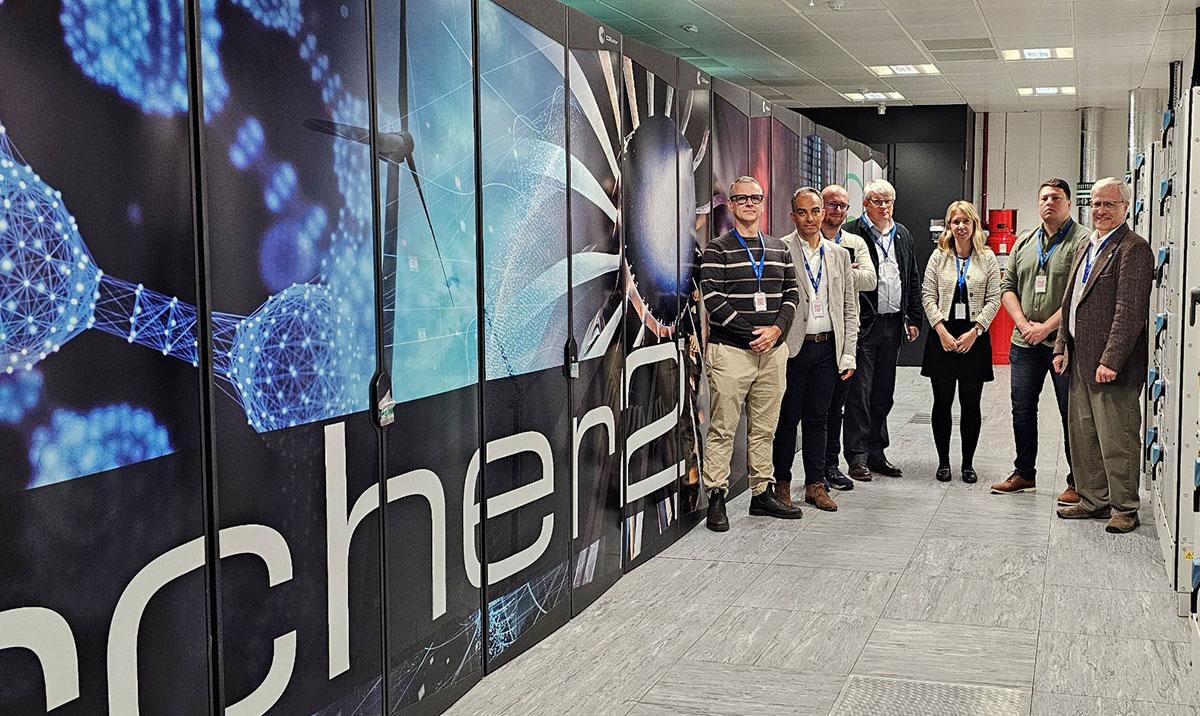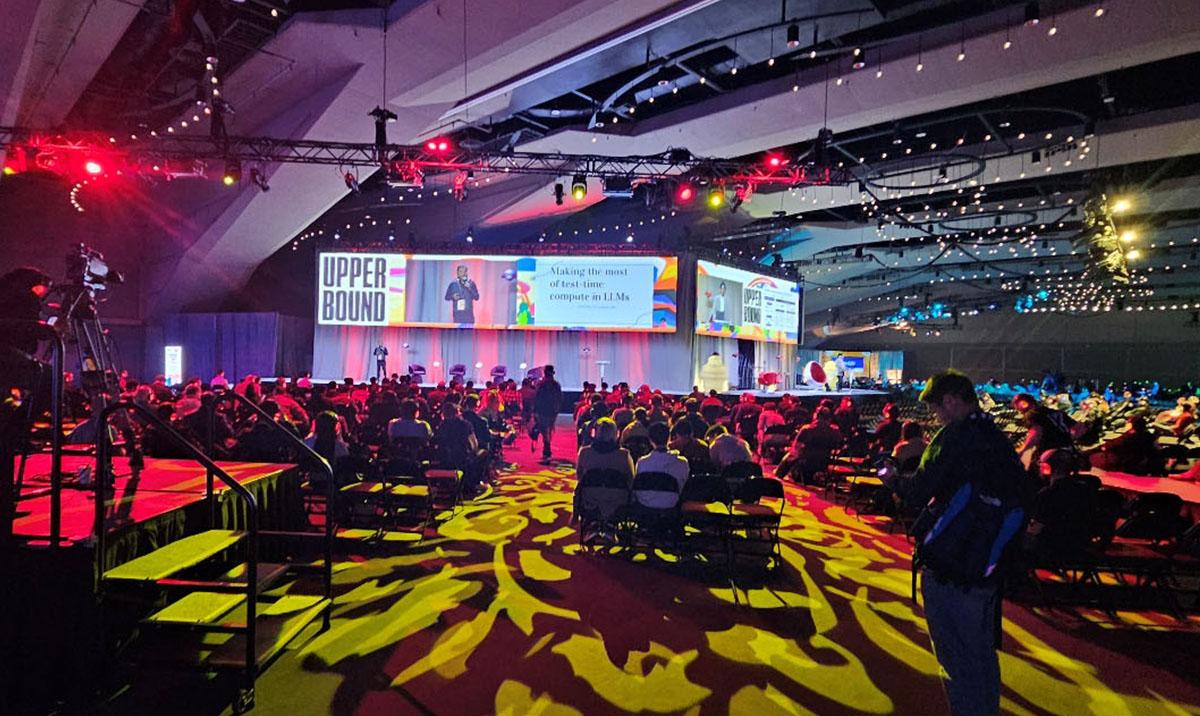Engaging with the Canadian AI community
4 July 2025
In late May, Mark Parsons and Ritchie Somerville were hosted by Alberta Machine Intelligence Institute (Amii), as part of a UK contingent invited to participate in its annual Upper Bound AI Conference in Edmonton, Alberta. Here is Ritchie's review.
This followed on from engagement started in 2024 on the back of the UK-Canada cooperation in AI compute: memorandum of understanding signed in January 2024, establishing a framework for collaborating on AI research and compute infrastructure development. Many may be unaware, but Canada was the first nation globally to publish a National AI Strategy, in 2017.
The UK/Canada collaboration had its first activity in July 2024, when the Foreign and Commonwealth Office, Department for Science, Innovation & Technology (DSIT), and UK Research and Innovation (UKRI) supported a visit to the UK, with visits to EPCC and the Advanced Computing Facility (ACF), BRiCS in Bristol and a day in London with UKRI/DSIT. The visit included representatives from:
- the Canadian Institute for Advanced Research (CIFAR)
- the Canadian Communications Security Establishment
- Quebec AI Institute (MILA)
- the Vector Institute
- Alberta Machine Intelligence Institute (Amii)
- the Digital Research Alliance of Canada
- the National Research Council Canada.

Above: The Canadian delegation's visit to the ACF in July 2024.
Having hosted the Canadian community in July 2024, and shown them how we have developed the Advanced Computing Facility and the Edinburgh International Data Facility, Mark and I were asked to present on two topics at Upper Bound, under the Conference theme of AI for Critical Infrastructure:
- UK's HPC Future: Innovation and Impact, a panel discussion where we were joined by Dr Sadaf Alam, Chief Technology Officer (CTO) at Bristol Centre for Supercomputing (BriCS).
- Lessons in enabling AI Infrastructure: Edinburgh International Data Facility, a presentation where Mark and I explained how we sourced the funding and delivered the infrastructure through the Edinburgh and South East Scotland City Region Deal, creating what is now equivalent to a regional AI Factory.

Above: the UK HPC infrastructure panel discussion. Credit: AMII.
Upper Bound is a unique experience. Run like a silent disco in the Edmonton Conference Center, the main hall hosts seven stages in the same space, with the audience able to switch between stage audio with the press of a button on their headsets. It makes the transition between talks remarkably simple and creates an incredibly calm conference.
The UK currently does not have an equivalent event which brings together policy leaders, academia, industry, and users, with the focus on learning, delivery, and collaborative engagement.

Above: parallel presentations at Upper Bound.
The keynote presentation from Dr Richard Sutton, a Turing Award recipient, on The Era of Experience and the Age of Design was a particular highlight, with his expertise in Reinforcement Learning. His presentation on the need to be wary of those who seek to ‘control’ AI, as distinct to co-operative operation and regulation, advocated for decentralised co-operation of AI:
“If we look with open eyes, it is easy to see who is calling for mistrust, non-co-operation, and centralised control; we should resist these calls. This is a useful lens with which to view all calls for human and AI Interaction.”
Going forward
Engagement with the Canadian community was extremely positive and a variety of follow-on opportunities are being explored for joint working. Watch this space for updates.

